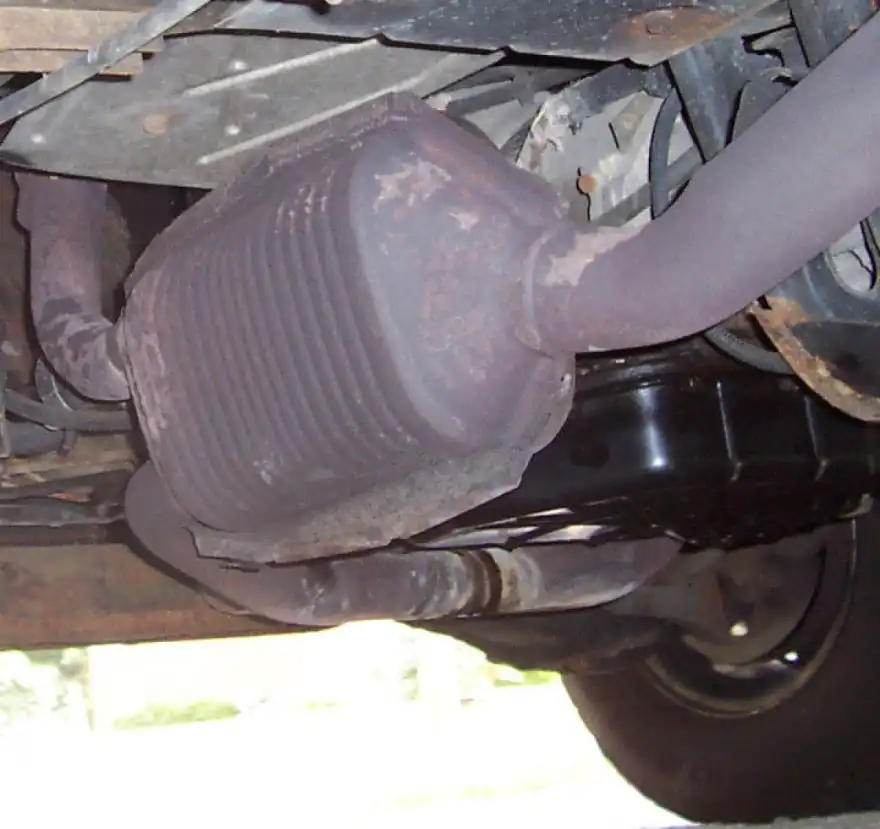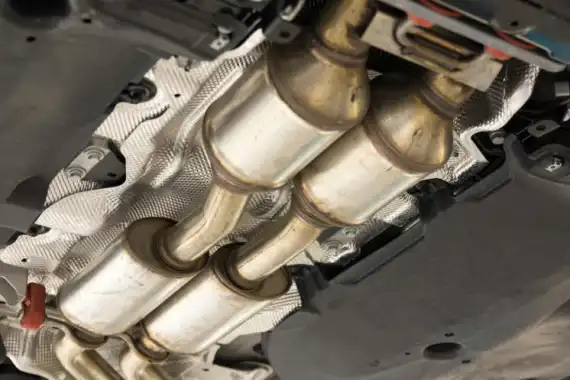
And, according to Admiral car insurance, the concerning figures are showing no sign of easing up.
Catalytic converters form part of the exhaust system in some cars and they process the emissions from a combustion engine into less harmful gases.
They have come to the attention of thieves because of the precious metals including rhodium, gold, platinum and palladium that are used within some catalytic converters, which can then be sold on for profit. At present, palladium is even more valuable than gold and platinum is worth around two thirds the value of gold.

Despite the high value of the precious metals used within catalytic converters, Admiral warns they are relatively simple to steal as the exhaust system is exposed beneath most cars, making them an easy target in the current climate.
And although the insurance company was not prepared to disclose exact numbers of thefts it did confirm that it deals with several hundred claims each month and that the number was rising significantly.
Between 2019 and 2020, the increase in claims for thefts of catalytic converters rose by a staggering 44 per cent. And in March 2021, there were 57 per cent more claims than March last year with the average cost for each claim being about £1,500.
According to Admiral, criminal gangs are believed to be responsible for the thefts and it is thought the proceeds could be used to fund bigger crimes.

Lorna Connelly, Head of Claims at Admiral explains: “The theft of catalytic converters is often carried out by opportunist thieves who may be working their way around different neighbourhoods.
“This isn’t always the case, however, and there is evidence to suggest that criminal gangs are involved in these types of thefts. The precious metals used within catalytic converters are sold at a profit, and that profit could be used to fund even bigger crimes not just in the UK but also abroad.
“We believe that many stolen catalytic converters are taken abroad, which could explain why the thefts dropped off during the first lockdown last year.
“Palladium seems to be of particular interest and criminals are aware of which catalytic converters are more lucrative and contain more precious metals than others.”
The cost of each claim tends to differ depending how much damage is caused to vehicles. But as it is quite an opportunist crime, the thieves are often in a hurry so tend to cause more damage.
Lorna Connelly added: “Many of the cars targeted are older models, maybe because the quantity of precious metals their catalytic converters contain is higher. Unfortunately, if the damage to these cars is too severe, they may need to be written off.
“When the car can be repaired, the work can be delayed as there is a shortfall of replacement catalytic converters given the sheer volume of the thefts taking place and supply just can’t keep up with the demand. This can cause additional distress as motorists have to wait longer for their car to be repaired.”
According to Admiral, hybrid models seem to be most at risk with the likes of the Honda Jazz, Toyota Prius, Toyota Auris and Lexus RX often falling victim, along with older models in particular. The hybrid cars are targeted because their catalytic converters contain a higher concentration of precious metals and are generally less corroded.
Lorna Connelly said: “Our data shows that the number of catalytic converter thefts taking place is dramatically rising again after a lull at the start of the pandemic.
“Unfortunately, it doesn’t take long to steal a catalytic converter and if thieves can get underneath the car, they can simply use cutters to remove them.
“If your vehicle’s catalytic converter has been stolen, it would make a significant noise when you start the car and you can’t drive the vehicle without one.
“Regardless of which car you own, you should be vigilant and do everything you can to make sure it’s parked in a safe and secure place. If you don’t have a private driveway or garage, parking somewhere well lit, and not parking half on the pavement will make it harder for thieves to access the catalytic converter.
“Some thieves are savvy and will wear hi-vis vests to throw potential witnesses off the scent and unassuming passers-by could quite easily assume official work is being carried out. If you do see someone underneath a car in your street, make a note of any useful information and report it to the police or Crimestoppers.”
And the police have issued their own advice in a bid to reduce the number of thefts.
Top safety tips include: Park in a locked garage or in a well-lit, densely populated area; Park close to fences, walls or kerbs with the exhaust being closest to the barrier as this will make the theft more difficult; Avoid mounting your car on the kerb to park as it gives thieves easy access; If your catalytic converter’s bolted on ask your local garage to weld the bolts to make it more difficult to remove; Consider a ‘cage clamp’ which locks around the converter and speak to your car dealership about a tilt sensor that activates the alarm if someone tries to jack up your vehicle.


